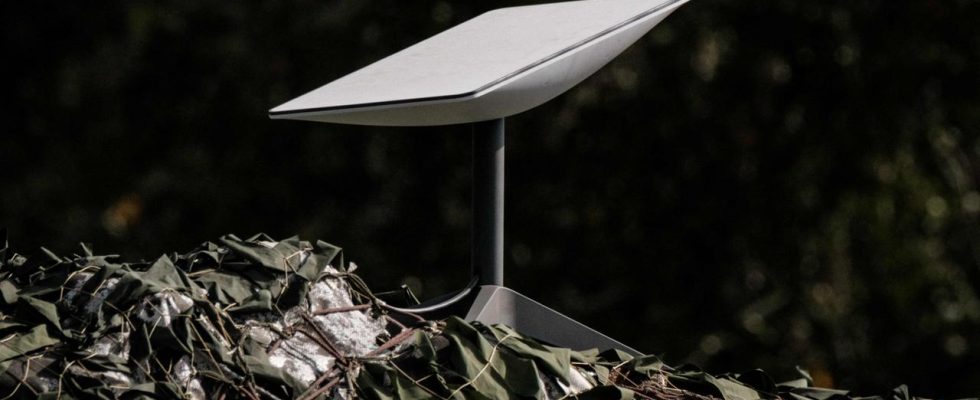live blog
Ukraine accuses Arab countries of allowing Starlink equipment to be delivered to Moscow. Russia has apparently attacked the infrastructure of the major city of Dnipro in eastern Ukraine with drones and missiles. The developments in the live blog.
Russia has put Estonian Prime Minister Kaja Kallas on a wanted list. The head of government’s name was on the Russian Interior Ministry’s register of people wanted in connection with criminal allegations. What Kallas is accused of was not clear from the entry.
It was the first time that the ministry put a foreign head of state or government on a wanted list. Kallas has worked hard to increase military aid to Ukraine, which is under attack by Russia, and to tighten sanctions against Russia.
Frank Aischmann, ARD Moscow, tagesschau, February 13, 2024 11:58 a.m
Ukraine accuses Arab countries of allowing the delivery of military-critical equipment to Russia for the use of the US Internet service Starlink. “The occupiers in the Arab countries are buying the Starlink terminals,” wrote the Ukrainian military intelligence service HUR on its Telegram channel, citing intercepted conversations of Russian soldiers. These are not official deliveries, but smuggling.
The Starlink satellite network, operated by billionaire Elon Musk, provides internet access and is also used by Ukraine to control weapons systems in its defense against the Russian invasion. This communication was considered one of the few advantages that Kiev had over the highly equipped Russian army during the war. Last week, however, Ukrainian military intelligence announced that the Internet connection was now also being used by the Russian military in the frontline area. Both SpaceX and the Kremlin have now denied official deliveries of the device.
Better equipment for the Bundeswehr has been a clear goal of the Federal Government since the Russian attack on Ukraine. But there are still big question marks about how this will be financed in the long term. The CDU defense politician Roderich Kiesewetter has shown himself open to a significant increase in the 100 billion euro special pot for the Bundeswehr, he told the “Süddeutsche Zeitung”.
“It is completely clear that we need 300 billion instead of 100 billion so that the Bundeswehr can become combat-ready,” said Kiesewetter. However, he demanded that misappropriation of the money to plug budget holes must be ruled out, and that a permanent defense budget of at least two percent of economic power must still be achieved in parallel.
According to its chairman Mike Johnson, the Republican-dominated US House of Representatives does not want to approve the Senate’s current bill for new aid to Ukraine and Israel.
Johnson’s reasoning was that the draft did not address “the most pressing issue facing our country” – referring to securing the US border with Mexico. The Senate, for its part, could vote on the aid package as early as Tuesday – approval is considered likely. The legislative package with a total volume of 88 billion euros, which is ready to be voted on in the Senate, contains military aid for Ukraine worth around 60 billion dollars.
Russia has apparently attacked civilian infrastructure in Ukraine again. The mayor of the central Ukrainian city of Dnipro, Borys Filatov, wrote on Telegram that as a result of Russian attacks, electricity and water supplies were interrupted in some areas. According to the Ukrainian Air Force, there was a combined drone and missile attack on the city.
After the restructuring of the military leadership, Ukrainian President Volodymyr Zelenskyj held a meeting of the high command with the new members for the first time. Among those present at the meeting was Colonel General Olexander Syrskyj, who was appointed commander-in-chief last week, as Zelenskyj said in his evening video address. It was about the situation on the front in the east and south of the country, he added. It was also discussed how the critical infrastructure – such as electricity and water supplies – could be protected in the best possible way.
Germany, France and Poland want to take joint action against Russian cyber attacks. The EU has created the basis for using the proceeds from frozen funds from the Russian central bank. Monday’s live blog for reading.

